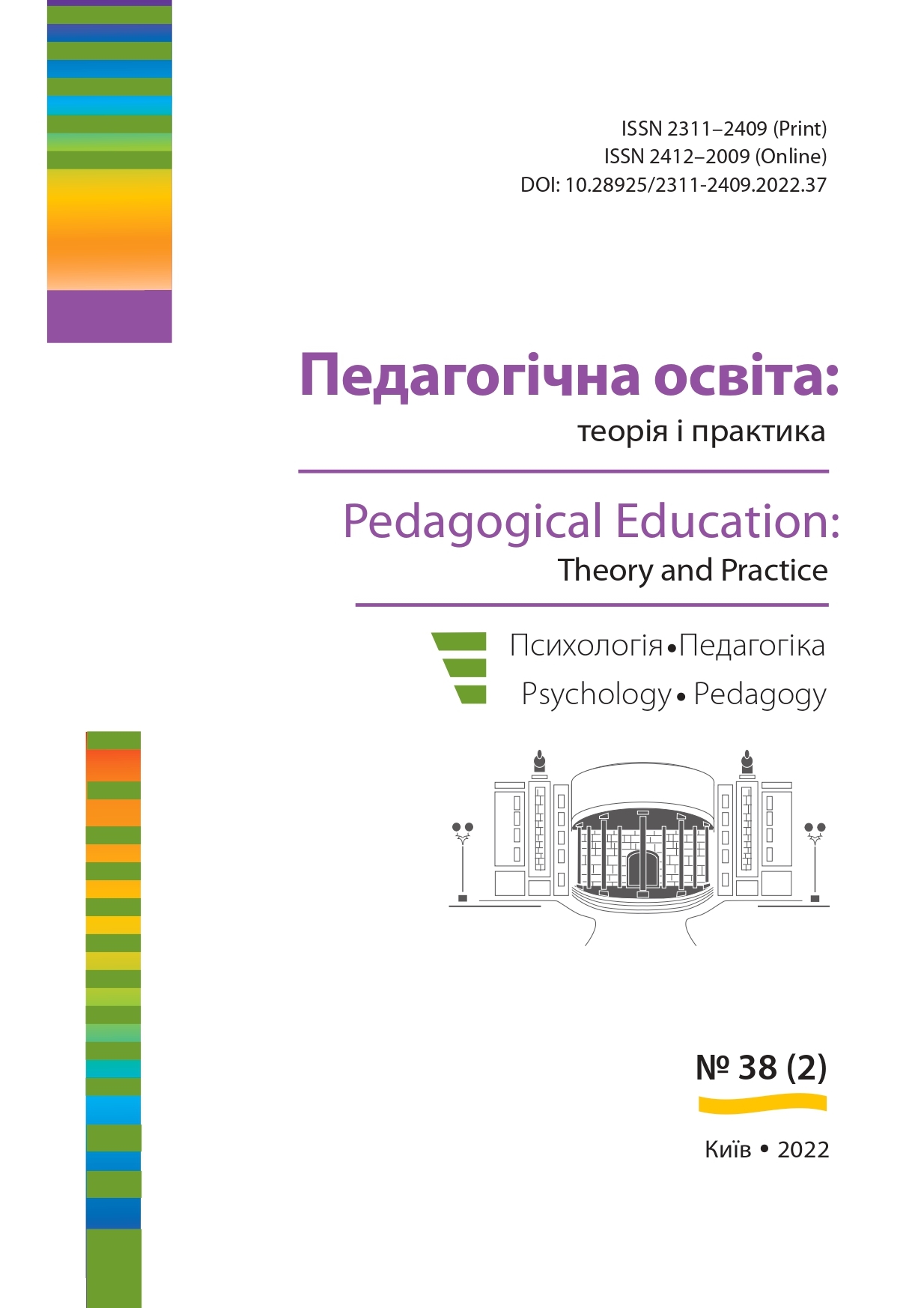ДИЛЕКТІНГИ ЯК ПРОЕКТ СУЧАСНОГО ІНСТРУМЕНТУ ЦИФРОВОЇ ЛІТЕРАТУРНОЇ ОСВІТНЬОЇ КОМПЕТЕНТНОСТІ ВЧИТЕЛЯ
DOI:
https://doi.org/10.28925/2311-2409.2022.383Ключові слова:
: digital literacy skills, self-perceptions of digital literacy competencies, literary reading in lan- guage teaching.Анотація
Постановка проблеми. Стаття присвячена висвітленню основних положень щодо впровадження проекту DILECTINGS як комплексу заходів для всіх учасників освітнього процесу з розвитку цифрової грамотності.
Метод дослідження. Використовувалися методи цифрового читання, методи дистанційної роботи з використанням DLL та LDR Hub, використання платформ eTwinning/School Education Gateway для виконання завдань цифрового читання, використання технологій CANVAS.
Дані. Вчителі розвивали навички педагогічної діяльності з використанням цифрових технологій читання, працюючи в Moodle та eTwinning/School Education Gateway. Учні розвивали компетенції з цифрового читання, використання технологій для створення відеофайлів.
Висновки. Реалізація проекту DILECTINGS мала забезпечити формування вузькоспеціальних компетенцій у використанні технічних засобів у навчальній діяльності.
Завантаження
Посилання
REFERENCES
D’Amico, A. (2018). The Use of Technology in the promotion of Children’s Emotional Intelligence: The Multimedia Program “Developing Emotional Intelligence”. International Journal of Emotional Education, 10(1), 47-67.
Audrin, C., Audrin, B. (2022). Key factors in digital literacy in learning and education: a systematic literature review using text mining. Educ Inf Technol. https://doi.org/10.1007/s10639-021-10832-5
Blayone, T. J. B., Mykhailenko, O., van Oostveen, R., & Barber, W. (2018). Ready for digital learning? A mixed-methods exploration of surveyed technology competencies and authentic performance activity. Education and Information Technologies, 233(), 1377–1402. https://doi.org/10.1007/s10639-017- 9662-6
Cabello-Hutt, T., Cabello, P., & Claro, M. (2018). Online opportunities and risks for children and adolescents: The role of digital skills, age, gender and parental mediation in Brazil. New Media & Society, 20(7), 2411–2431. https://doi.org/10.1177/1461444817724168
Cladis, A. E. (2020). A shifting paradigm: An evaluation of the pervasive effects of digital technologies on language expression, creativity, critical thinking, political discourse, and interactive processes of human communications. E-Learningand Digital Media, 17(5), 341–364. https://doi.org/10.1177/2042753017752583
Cubeles, A., & Riu, D. (2018). The effective integration of ICTs in universities: The role of knowledge and academic experience of professors. Technology, Pedagogy and Education, 27(3), 339–349. https://doi.org/10.1080/1475939X.2018.1457978
Davies, L. L., Bode, K, Martin, S. K. & Sawyer, W. (2020). Reading in the (post)digital age: Large databases and the future of literature in secondary English classrooms. English in Education, 54(3), 299-315. https://doi.org/10.1080/04250494.2020.1790991
Dowthwaite, L., Perez Vallejos, E., Koene, A., Cano, M. & Portillo V. (2019). A comparison of presentation methods for conducting youth juries. PLOS ONE 14(6): e0218770. https://doi.org/10.1371/ journal.pone.0218770
Gil-Flores, J., Rodríguez-Santero, J., & Torres-Gordillo, J. J. (2017). Factors that explain the use of ICT in secondary-education classrooms: The role of teacher characteristics and school infrastructure. Computers in Human Behavior, 68, 441–449. https://doi.org/10.1016/j.chb.2016.11.057
Hall, L.A. (2020). How Youth and Adults With Negative Reading Histories Found a Way to Enjoy Reading. Journal of Adolescent & Adult Literacy, 63( 6), 675– 682. https://doi.org/10.1002/jaal.1046
Handayani, S., Youlia, L., Febriani, R.B., Syafryadin S. (2020). The use of digital literature in teaching reading narrative text. Journal of English teaching, applied linguistics and literatures, 3(2), 65-74. http:// dx.doi.org/10.20527/jetall.v3i2.8445
Karakoç Öztürk, B. (2021). Digital Reading and the Concept of Ebook: Metaphorical Analysis of Preservice Teachers’ Perceptions Regarding the Concept of Ebook. SAGE Open. https://doi. org/10.1177/21582440211016841
Kuhn, A., Schwabe, A., Boomgarden, H., Brandl, L., Stocker, G., Lauer, G., Brendel-Kepser, I., & Krause- Wolters, M. (2022). Who gets lost? How digital academic reading impacts equal opportunity in higher education. New Media & Society. https://doi.org/10.1177/14614448211072306
Lee, K.M, Park, S., Jang, B.G. & Cho, B.Y. (2019). Multidimensional Approaches to Examining Digital Literacies in the Contemporary Global Society. Media and Communication, 7(2), 36–46. https://doi. org/10.17645/mac.v7i2.1987
Małecka, J. (2018). Internet Addiction among Primary School Children as a Civilisational Challenge.
Horyzonty Wychowania, 17 (42), 229-242. https://doi.org/10.17399/HW.2018.174218
Park, E., Kwon, M. (2021). Testing the Digital Health Literacy Instrument for Adolescents: Cognitive Interviews. Journal Medical Internet Researches, 23(3) : e17856. https://doi.org/10.2196/17856
Porat, E., Blau, I., Barak, A. (2018). Measuring digital literacies: Junior high-school students’ perceived competencies versus actual performance. Computer Education, 126, 23-36. https://doi.org/10.1016/j. compedu.2018.06.030
Seghayer, A.K. (2020). Investigating the adequacy of EFL Learners’ L2 digital literacy skills, consistency of self-assessed competence, and actual performance. International Journal of Computer-Assisted Language Learning and Teaching, 10(2), 1–22. https://doi.org/10.4018/IJCALLT.2020040101

